Celebrating Lunar New Year at SWA!
For the Year of the Rabbit (2023), we asked our staff to share their thoughts about Chinese/Lunar New Year – its significance to them personally, how they experienced it in their communities growing up… and their experience as professionals in the public realm in the cities where they are today.
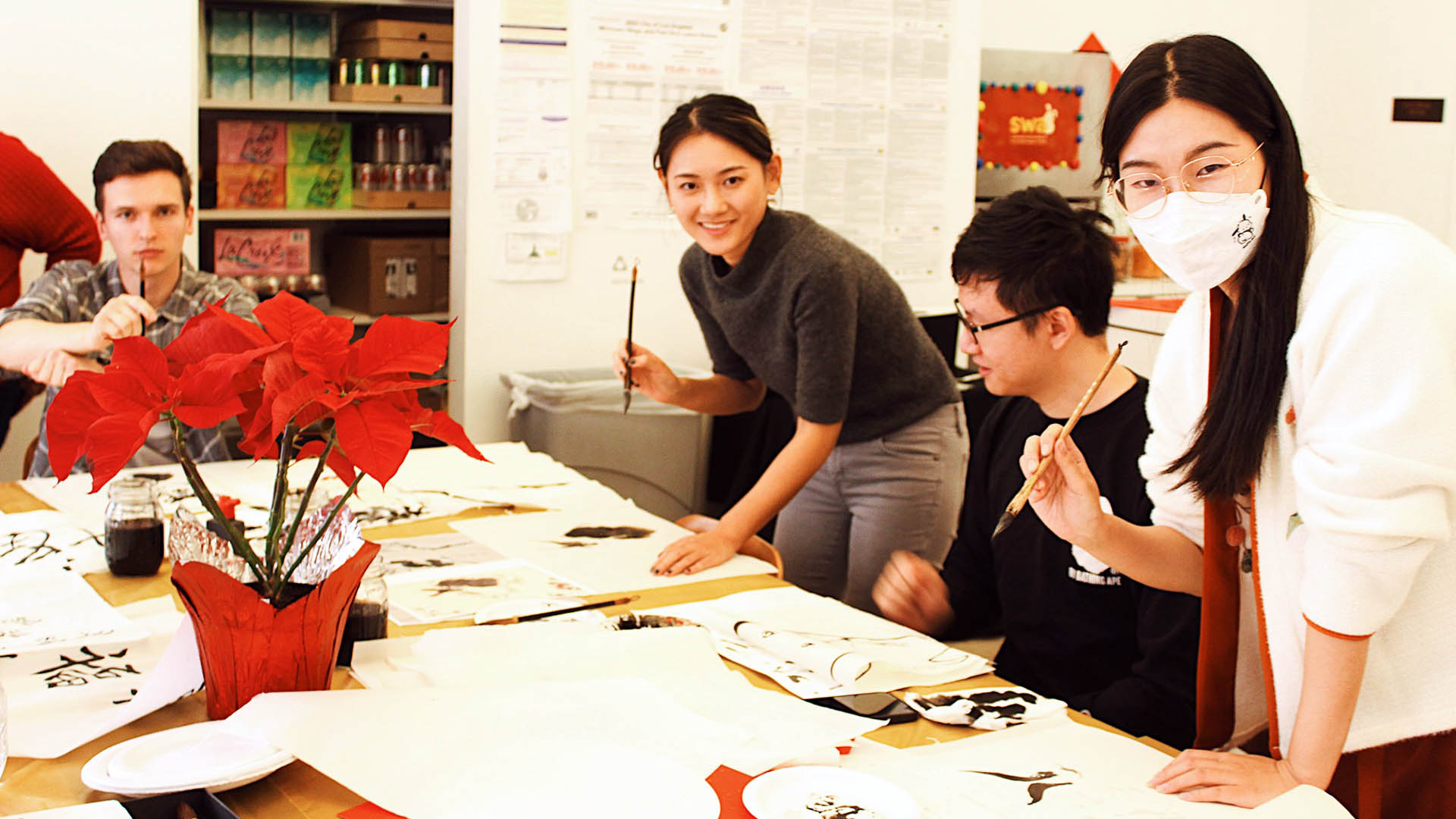
The Los Angeles studio hosted a fun, informative Lunar New Year event, which included a traditional Chinese calligraphy tutorial.
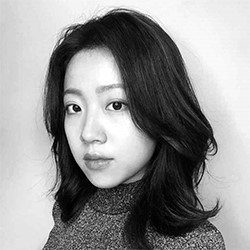
Yifan (Eva) Cai
Landscape Designer, Los Angeles
I associate Chinese New Year with reuniting with family over good food, and exchanging red envelopes (which can contain money, but always represent good luck and best wishes for the New Year). The holiday is also an excuse to do a lot of shopping! In terms of places that stand out in my mind for celebrations or activities associated with Chinese New Year, I always think of flower markets (certain flowers, like chrysanthemums, peonies, and orchids are associated with the season, as are plum and peach blossoms) and of civic lighting shows.

Ningxiao Cao
Landscape and Urban Designer, Houston
Chinese New Year seems to me to be similar to Christmas for every family in the U.S. We look forward to a big family feast with lots of traditional food – hot pot, dumplings, sticky rice balls, etc. It’s a time to get together as a family to watch Spring festival shows and fireworks, and usually on New Year’s Eve, our family visits a temple to burn incense and pray. In many cities, like Boston or New York, the historic Chinatown will be decorated for the holiday, and host parade/festival events. The color red, which has so many positive connotations in Chinese culture, is usually prominent. This year, I believe that Houston’s own Chinatown will have some kind of Chinese/Lunar New Year celebrations. This might be the first year I could attend in my current city!
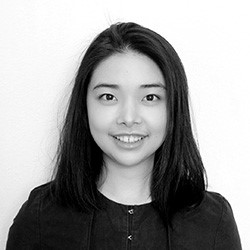
Yaxin Cao
Landscape Designer, Sausalito
Chinese New Year is definitely a very precious memory for me. It’s the biggest festival in China, like Christmas is in the U.S., and a time for family reunions, as well as a way of keeping cultural traditions alive. In my hometown of Jiujiang, we usually have a family dinner on Chinese New Year’s Eve – and all family members make an effort to gather, no matter where they live, to spend that week together. After dinner, my family would usually watch the Spring Festival Gala on TV. Then the kids tend to play with firecrackers outside or on the balcony, while parents play mahjong. Since moving to the U.S., I’ve noticed that many people go to San Francisco’s Chinatown to celebrate, but that place is pretty narrow and busy. (There could definitely be more outdoor areas for people to watch parades and dragon/lion dance performances!) I have gotten together with friends to make dim sum and watch the lion dance show in design school with our classmates and teachers. And in some areas, people might have traditions of going to the market/fair to buy fresh food for the big family dinner.
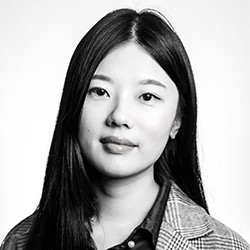
Yiwen Chen
Landscape Designer, Dallas
I always appreciate Chinese New Year as a time for a big rest, a big feast… and time to spend with family. When I was little, it was also a time to receive a lot of gifts, and to change clothes from head to toe. In my hometown, lanterns were a major feature: there was an exhibition every year, with lanterns varying from small portable ones to giant installations: all of which lit up the lake and reflected the moon. Small businesses had toys and food for sale, and street artists displayed their talents in exhibition areas. In Dallas, I spend the New Year with my Chinese friends here, but I don’t see places arrayed for the holiday at the same scale. Large Chinese grocery stores and food courts will sometimes stage some small events, but the decorations are mostly “old Chinese” style, and the performances are not compelling enough.

Shih-Chia Chiu
Landscape Designer, Laguna Beach
I grew up in Miaoli, Taiwan. In my hometown, people celebrate Lunar New Year by playing with all kinds of fireworks, and participating in Dragon Dances on the street. If the Dragon comes to your house, that means wishing you a whole year of luck! During the event, the road will temporarily close, and become a place for performances for people to enjoy the New Year celebration.

Rita Jia
Marketing, Houston
I grew up in inner Mongolia, and this was always the happiest time of the year! It meant that I could buy new clothes, rejoin family, eat my favorite foods that my grandparents made, and have a lot of fun with my cousins! In my hometown, we celebrated Chinese New Year with a family gathering. On Lunar New Year’s Eve, my family gathered at my grandparents’ house, and we all wore something red. We had a big meal, including dumplings and other special dishes that my family members made. Then we watched Spring Festival Gala on TV (it is quite an entertaining show!). Then at midnight, we would light fireworks and walk in circles around a central bonfire to bring good luck. The next day would be the time for kids to say, “Happy New Year, and wish you health and happiness!” to grandparents. Then, they’d give us a red envelope with money in it – meaning, “don’t-grow-up money.” (I don’t get those anymore, since I’m a grown-up now.) Although I’ve been in the U.S. in recent years and can’t be with my family physically, we still have video calls for the holiday, and I celebrate it with my friends here. It is still a time full of joy and love.
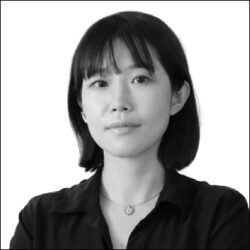
Jiali Liu
Landscape Designer, Houston
My fond memories of Chinese/Lunar New Year are pretty much just like those of every family in my hometown. We got together and made dumplings on New Year’s Eve. There were great Chinese dishes cooked… and each of them has a special name for good luck. Kids would get red envelopes from relatives. I looked forward to it as a chance to reunite with family and friends. The holiday stands out to me especially as a memorable time spent with my grandma. We lived in different cities, and I visited her every year for Chinese New Year, but she passed away when I was studying here in Texas. As a landscape designer, when I think about the spirit of Chinese New Year as one of gathering and celebration, I do appreciate when cities create large spaces for fireworks watching, with surrounding resting areas. A human-scale walking street would be preferred for the traditional flower and food markets. Most importantly, all places should be easily accessible by walking or driving.
![MaLeo[1]](../../wp-content/uploads/2023/01/19195206/MaLeo1.jpg)
Yuzhe (Leo) Ma
Landscape Designer, Sausalito
The celebration usually starts from Chinese New Year’s Eve. On every single day of the first week of the new year, people will have different traditions of celebrating. For the first day, my family usually gather together at my grandparents’ place. For the second day, we’ll go together to the temple to pray for a good luck for the new year. The temple is a significant public space for this holiday. For the fifth day, people wish for good luck/wealth for the new year… It means a reunion for the whole family. I’m not sure that gathering in public is a tradition for Lunar New Year in my experience, other than at the temples themselves or markets where people need to buy fruits for New Year’s Eve, or representations of that lunar year’s animal.

Caroline Najarian
Landscape Designer, Los Angeles
I really enjoyed the Los Angeles studio’s Lunar New Year celebration! I had never previously attended any celebrations for the holiday, and it was really nice to learn about how it is celebrated. I know that LA’s Chinatown hosts a variety of events associated with Chinese New Year, but this was my first opportunity to get a sense of its significance. I loved our office event!
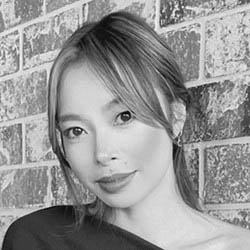
Ellysa Tabada
Administration, Los Angeles
The Chinese New Year means celebration for family and friends for the upcoming year, and sharing blessings among everyone in our community. If there’s one experience that made me think of the Lunar New Year, it would be my mom setting up food and a fruit basket in one particular area to commemorate our ancestors. She also used to set a small bell by our main door to keep the positivity and luck flowing. In Los Angeles’ Chinatown, there’s usually a festival that happens, with many food vendors, entertainments, and spiritual stores open to celebrate the upcoming New Year! There’s also a temple that is open out to the public. But it gets really crowded during the event, and there’s not much space for parking/pedestrian pathways.
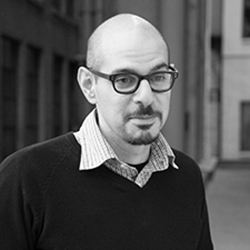
Paul Wehby
Graphic Designer, Firmwide/Los Angeles
I appreciate Chinese/Lunar New Year in relation to the history of Chinese cultural awareness in the USA. Some of the celebrations were started as a way to curb animosity towards Chinese communities. The history of Chinatown LA is one of censure, racism, land grabs, and displacement. In the Los Angeles area, we see parades and events in the greater LA area (specifically in Chinatown near Union Station) where activities are concentrated, and where they provide a means for the Chinese community to keep the dialogue about their history and culture alive as each generation passes. But we see the aftermath of previous segregation in the fact that Los Angeles’ Chinatown has little open space, lots of traffic, and many freeway on- and offramps.
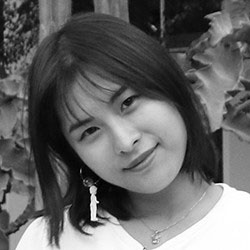
Shiya Zeng
Landscape Designer, Sausalito
Chinese New Year lasts about 16 days! On New Year’s Eve, we do housekeeping, prepare a dinner feast, and then often watch the New Year’s Gala and play games. Then we do the countdown to midnight, and set some fireworks off. For the first day of the New Year, we often divide our time between relatives on our father’s side of the family (for the first day) and our mother’s side (for the second day). These are spent visiting close relatives from the respective family sides and exchanging red envelopes. There’s also time for observance and condolence for family members who have passed away, which could involve visits to the temple. The rest of the days are spent visiting friends, relatives, colleagues, neighbors… anyone you want! But the last day is the Lantern Festival, where we gather with family and embrace a fresh new year. There are usually some local activities in the neighborhood. There is a big memorial plaza to set up fireworks. Some families might opt not to attend public celebrations, though, because everyone wants to stay at home with their family.
Animated greeting developed by SWA Shanghai, loosely based on the legend of the Eight Immortals.

Yifan (Eva) Cai
Landscape Designer, Los Angeles
I associate Chinese New Year with reuniting with family over good food, and exchanging red envelopes (which can contain money, but always represent good luck and best wishes for the New Year). The holiday is also an excuse to do a lot of shopping! In terms of places that stand out in my mind for celebrations or activities associated with Chinese New Year, I always think of flower markets (certain flowers, like chrysanthemums, peonies, and orchids are associated with the season, as are plum and peach blossoms) and of civic lighting shows.

Ningxiao Cao
Landscape and Urban Designer, Houston
Chinese New Year seems to me to be similar to Christmas for every family in the U.S. We look forward to a big family feast with lots of traditional food – hot pot, dumplings, sticky rice balls, etc. It’s a time to get together as a family to watch Spring festival shows and fireworks, and usually on New Year’s Eve, our family visits a temple to burn incense and pray. In many cities, like Boston or New York, the historic Chinatown will be decorated for the holiday, and host parade/festival events. The color red, which has so many positive connotations in Chinese culture, is usually prominent. This year, I believe that Houston’s own Chinatown will have some kind of Chinese/Lunar New Year celebrations. This might be the first year I could attend in my current city!

Yaxin Cao
Landscape Designer, Sausalito
Chinese New Year is definitely a very precious memory for me. It’s the biggest festival in China, like Christmas is in the U.S., and a time for family reunions, as well as a way of keeping cultural traditions alive. In my hometown of Jiujiang, we usually have a family dinner on Chinese New Year’s Eve – and all family members make an effort to gather, no matter where they live, to spend that week together. After dinner, my family would usually watch the Spring Festival Gala on TV. Then the kids tend to play with firecrackers outside or on the balcony, while parents play mahjong. Since moving to the U.S., I’ve noticed that many people go to San Francisco’s Chinatown to celebrate, but that place is pretty narrow and busy. (There could definitely be more outdoor areas for people to watch parades and dragon/lion dance performances!) I have gotten together with friends to make dim sum and watch the lion dance show in design school with our classmates and teachers. And in some areas, people might have traditions of going to the market/fair to buy fresh food for the big family dinner.
Animated greeting developed by SWA Shanghai, loosely based on the legend of the Eight Immortals.

Yiwen Chen
Landscape Designer, Dallas
I always appreciate Chinese New Year as a time for a big rest, a big feast… and time to spend with family. When I was little, it was also a time to receive a lot of gifts, and to change clothes from head to toe. In my hometown, lanterns were a major feature: there was an exhibition every year, with lanterns varying from small portable ones to giant installations: all of which lit up the lake and reflected the moon. Small businesses had toys and food for sale, and street artists displayed their talents in exhibition areas. In Dallas, I spend the New Year with my Chinese friends here, but I don’t see places arrayed for the holiday at the same scale. Large Chinese grocery stores and food courts will sometimes stage some small events, but the decorations are mostly “old Chinese” style, and the performances are not compelling enough.

Shih-Chia Chiu
Landscape Designer, Laguna Beach
I grew up in Miaoli, Taiwan. In my hometown, people celebrate Lunar New Year by playing with all kinds of fireworks, and participating in Dragon Dances on the street. If the Dragon comes to your house, that means wishing you a whole year of luck! During the event, the road will temporarily close, and become a place for performances for people to enjoy the New Year celebration.

Rita Jia
Marketing, Houston
I grew up in inner Mongolia, and this was always the happiest time of the year! It meant that I could buy new clothes, rejoin family, eat my favorite foods that my grandparents made, and have a lot of fun with my cousins! In my hometown, we celebrated Chinese New Year with a family gathering. On Lunar New Year’s Eve, my family gathered at my grandparents’ house, and we all wore something red. We had a big meal, including dumplings and other special dishes that my family members made. Then we watched Spring Festival Gala on TV (it is quite an entertaining show!). Then at midnight, we would light fireworks and walk in circles around a central bonfire to bring good luck. The next day would be the time for kids to say, “Happy New Year, and wish you health and happiness!” to grandparents. Then, they’d give us a red envelope with money in it – meaning, “don’t-grow-up money.” (I don’t get those anymore, since I’m a grown-up now.) Although I’ve been in the U.S. in recent years and can’t be with my family physically, we still have video calls for the holiday, and I celebrate it with my friends here. It is still a time full of joy and love.

Jiali Liu
Landscape Designer, Houston
My fond memories of Chinese/Lunar New Year are pretty much just like those of every family in my hometown. We got together and made dumplings on New Year’s Eve. There were great Chinese dishes cooked… and each of them has a special name for good luck. Kids would get red envelopes from relatives. I looked forward to it as a chance to reunite with family and friends. The holiday stands out to me especially as a memorable time spent with my grandma. We lived in different cities, and I visited her every year for Chinese New Year, but she passed away when I was studying here in Texas. As a landscape designer, when I think about the spirit of Chinese New Year as one of gathering and celebration, I do appreciate when cities create large spaces for fireworks watching, with surrounding resting areas. A human-scale walking street would be preferred for the traditional flower and food markets. Most importantly, all places should be easily accessible by walking or driving.
![MaLeo[1]](../../wp-content/uploads/2023/01/19195206/MaLeo1.jpg)
Yuzhe (Leo) Ma
Landscape Designer, Sausalito
The celebration usually starts from Chinese New Year’s Eve. On every single day of the first week of the new year, people will have different traditions of celebrating. For the first day, my family usually gather together at my grandparents’ place. For the second day, we’ll go together to the temple to pray for a good luck for the new year. The temple is a significant public space for this holiday. For the fifth day, people wish for good luck/wealth for the new year… It means a reunion for the whole family. I’m not sure that gathering in public is a tradition for Lunar New Year in my experience, other than at the temples themselves or markets where people need to buy fruits for New Year’s Eve, or representations of that lunar year’s animal.

Caroline Najarian
Landscape Designer, Los Angeles
I really enjoyed the Los Angeles studio’s Lunar New Year celebration! I had never previously attended any celebrations for the holiday, and it was really nice to learn about how it is celebrated. I know that LA’s Chinatown hosts a variety of events associated with Chinese New Year, but this was my first opportunity to get a sense of its significance. I loved our office event!

Ellysa Tabada
Administration, Los Angeles
The Chinese New Year means celebration for family and friends for the upcoming year, and sharing blessings among everyone in our community. If there’s one experience that made me think of the Lunar New Year, it would be my mom setting up food and a fruit basket in one particular area to commemorate our ancestors. She also used to set a small bell by our main door to keep the positivity and luck flowing. In Los Angeles’ Chinatown, there’s usually a festival that happens, with many food vendors, entertainments, and spiritual stores open to celebrate the upcoming New Year! There’s also a temple that is open out to the public. But it gets really crowded during the event, and there’s not much space for parking/pedestrian pathways.

Paul Wehby
Graphic Designer, Firmwide/Los Angeles
I appreciate Chinese/Lunar New Year in relation to the history of Chinese cultural awareness in the USA. Some of the celebrations were started as a way to curb animosity towards Chinese communities. The history of Chinatown LA is one of censure, racism, land grabs, and displacement. In the Los Angeles area, we see parades and events in the greater LA area (specifically in Chinatown near Union Station) where activities are concentrated, and where they provide a means for the Chinese community to keep the dialogue about their history and culture alive as each generation passes. But we see the aftermath of previous segregation in the fact that Los Angeles’ Chinatown has little open space, lots of traffic, and many freeway on- and offramps.

Shiya Zeng
Landscape Designer, Sausalito
Chinese New Year lasts about 16 days! On New Year’s Eve, we do housekeeping, prepare a dinner feast, and then often watch the New Year’s Gala and play games. Then we do the countdown to midnight, and set some fireworks off. For the first day of the New Year, we often divide our time between relatives on our father’s side of the family (for the first day) and our mother’s side (for the second day). These are spent visiting close relatives from the respective family sides and exchanging red envelopes. There’s also time for observance and condolence for family members who have passed away, which could involve visits to the temple. The rest of the days are spent visiting friends, relatives, colleagues, neighbors… anyone you want! But the last day is the Lantern Festival, where we gather with family and embrace a fresh new year. There are usually some local activities in the neighborhood. There is a big memorial plaza to set up fireworks. Some families might opt not to attend public celebrations, though, because everyone wants to stay at home with their family.


